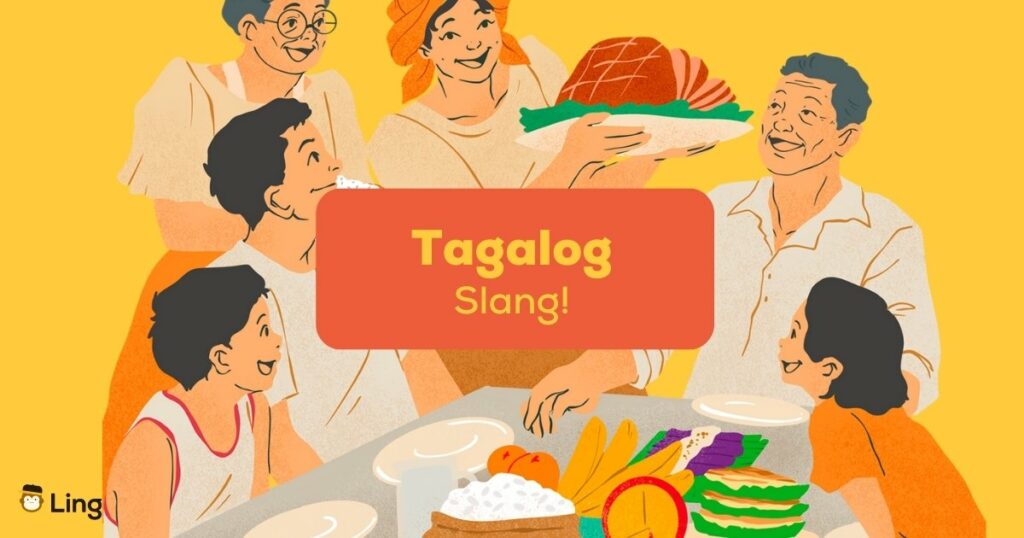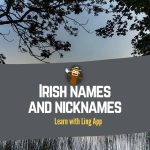Speaking like a local is not just about using the right terms or expressions. Sometimes, you also have to level up your words to establish a more authentic form of communication. With this being said, if there is one set of words that can seriously reflect a lot about the Philippines’ diverse culture, then that would be its unique range of Tagalog slang words.
This is why in this article, we will give you a sneak peek at some of the rampantly used Filipino expressions that you can use to blend in perfectly in the Philippines.
At present, we are seeing a significant number of tourists from all over the world who are considering visiting the Pearl of The Orient Seas.
With its pristine historical sites, spellbinding beaches, and savory dishes, the country remains one of Asia’s highest-rated travel destinations. And if you are planning to book a trip, then it would be wise to level up your Tagalog vocabulary with a few local words that will surely impress the locals.
What Are The Most Common Tagalog Slang Words?
Unlike other languages, the slang words of Filipinos are a caliber of their own. It usually features masterful use of two to three letters, playful modifications of Tagalog words, and Taglish (a combination of Tagalog and English).
Below, we have listed 20 words that we can guarantee that you will hear among your friends or colleagues of Filipino descent.
1. Nyek
Direct translation: oops
Do note that this Tagalog word can also be used interchangeably with “nge,” “nye,” or “ngek,” but it all means the same thing.
2. Jowa
Direct translation: boyfriend / girlfriend
You can use this when referring to your special someone. Additionally, if you want to say that someone is a girlfriend/boyfriend material, you can say “jowable.”
3. Charot
Direct translation: joking
Also used as “char,” this word is widely used and is synonymous with the English phrase “just joking” or “just kidding.”
4. Chibog
Direct translation: food
This can be said to refer to food or to signify eating time.
5. Lodi
Direct translation: idol
This is the reversed version of the English word “idol.” You can use this word when speaking with someone who you look up to.
6. Petmalu
Direct translation: awesome
This is the reversed version of the Tagalog word “malupet” or “malupit,” which is synonymous with the English words “amazing” or “awesome.”
7. Mumshie
Direct translation: mother
This is a cute way of calling your biological mother or any female who is significantly older than you.
8. Werpa
Direct translation: power
This word has been part of everyday Tagalog conversation and can be used to show the utmost support to someone.
9. Keri
Direct translation: can do
When someone asks if you can do something and the answer is yes, you can use this word instead to signify that you are confident you can.
10. Bes/Beshie
Direct translation: best friend
You can use this as a term of endearment for your closest friends. It can be added in both oral and digital conversations.
11. Praning
Direct translation: crazy
This one is used to describe someone who is out of their mind. Do note that you should use this only with your close friends as this can be viewed as rude by other people.
12. Chika
Direct translation: gossip
If you want to ask someone what’s up with them, then you can simply say, “anong chika?”
13. Kyah
Direct translation: big brother
This is a playful take on the Tagalog word “kuya” or big brother in English. You can use this when speaking with men who you do not know well.
14. Tsikot
Direct translation: car
This Tagalog slang refers to “kotse” or car in English.
15. Tigok
Direct translation: dead
Aside from this, you can also use the word “dedo” to say that something/someone is dead.
16. Wafu/Wafa
Direct translation: handsome/ beautiful
You can use this term to refer to someone who is good-looking.
17. Dehins
Direct translation: no
This is another playful take on the Tagalog word “hindi” or “no” in English.
18. Susmaryosep
Direct translation: Jesus, Mary, and Joseph
This is one of the most used interjections, which combines the Holy Names of Jesus, Mary, and Joseph.
19. Mumu
Direct translation: ghost / cheap
This Filipino slang can be used to refer to ghosts or spirits, but it can also be used to describe something that is of low price or make.
20. Basta
Direct translation: just because
If you do not want to explain something, you can use this word to end a statement.
More Tagalog Slang Terms
Here is a list of common Filipino slang words that can make a tourist sound like a local in the Philippines:
| Tagalog Slang | English Meaning |
|---|---|
| Bro/Brod/Sis/Sissy | A casual term used to address a close friend |
| Chika | Gossip or casual conversation |
| Chickboy | A young man who is fond of showing off and flirting with women |
| Epal | Someone who constantly seeks attention or acts boastful |
| Gigil | An urge to pinch or squeeze something that is irresistibly cute |
| Kilig | A feeling of excitement or butterflies in your stomach |
| Lasing/Lasheng | Drunk |
| Sabe | Know or understand |
| Sarap | Delicious or enjoyable |
| Tara | Come on or let’s go |
| Tito/Tita | A term used to address an older person, similar to “aunt” or “uncle” |
| Tsum | Short for “tsamba” meaning “a trick” or “a scheme” |
| Wag ka nang mag-alala | Don’t worry about it |
Before using these words, don’t forget that Tagalog slang terms can have different meanings and connotations in different regions and contexts in the Philippines. So, always use them carefully and in the right context.

Decoding The Online Lingo: A Look Into Filipino Internet Slang Words
Conversations do not just happen face-to-face, right? To prepare you for online discussions in the Filipino community on social media, we have listed below ten more Tagalog internet slang words that you will undoubtedly encounter on Filipino-managed sites, forums, or online marketplaces on the internet.
| Tagalog Slang | English Meaning |
|---|---|
| Oi | This is an example of code-switching since this question uses both Tagalong and English. It directly translates to “where are you?” |
| Wer na u? | You can use this word whenever you want to ask “how much” is the price of any item a Filipino sells online. It is widely used in the social media marketplace. |
| Hir na me | Another form of expression combines English and Tagalog. It refers to “I am here.” |
| GBU | Since the Philippines is a Catholic country, Filipinos love using this expression to wish someone “God bless you.” |
| SKL | Want to express your thoughts? You can simply add this three-letter slang, which means “share ko lang.” In English, this is almost the same as the expression “just my two cents.” |
| HM | You probably think that this means “long-playing,” but in the Philippines, this is used to ask, “what’s the lowest price” for a certain item. |
| OL? | This two-letter question is a powerful combination that asks whether the person is “online” or not. |
| SLR | This three-letter slang stands for quite a long translation, which is “sorry for the late reply.” |
| LP | You probably think that this means “long-playing,” but in the Philippines, this is used to ask the question, “what’s the lowest price” for a certain item. |
| Geh | This slang is used to say “sure” or “sige” in Tagalog. |
Learning Basic Phrases In The Tagalog Language
The Filipino language is deeply connected with other languages, which is why native English or Spanish speakers can acquire this with no sweat. It is so easy to learn, which makes it one of the most interesting foreign languages that foreigners enjoy.
If you want to establish richer interactions with your Pinoy (another term for Filipino descent) friends, colleagues, and loved ones, we absolutely recommend the Ling app. This powerful resource offers an interactive experience with the target language through its fun quizzes, motivational Tagalog lessons, and entertaining games.
It is available online and can be downloaded to your mobile phone so that you can practice Tagalog anytime and anywhere.
And you know what is even more exciting about this application? Unlike other language learning programs, the Ling app covers the essential translations and the most native ways to say words or expressions in your target language.
In this sense, it not only discusses technical stuff but also allows you to sound more like a native than a tourist. If that strikes a chord, we encourage you to master Tagalog today by signing up for a free account! Download the Ling app from the App Store and Google Play today! Learn Tagalog slang words and beyond while having fun!
Updated by: Jefbeck








































